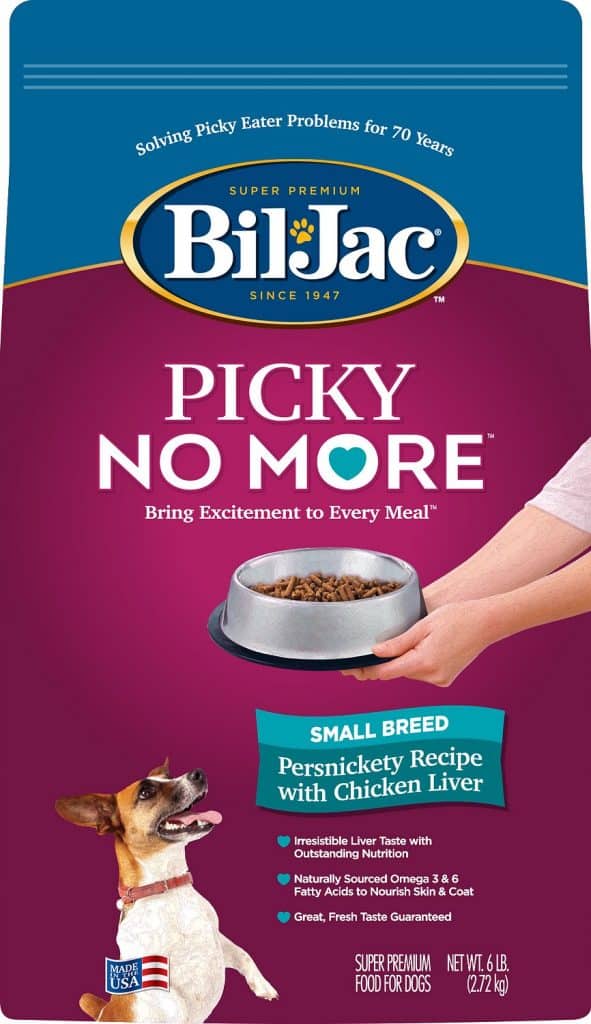

Just like you’d prefer cake over kale, you have to make healthy choices for a long, vibrant life. Many picky eaters will hold out for treats don’t give in. Dogs thrive on regimen and schedules sometimes they just need a little nudge. After 30 minutes, remove any uneaten food. Try to feed your dog at the same time two or three times a day. Some dogs need a refresher course in when it’s time to eat. Warmth and water can enhance the aromatics of the food, often enticing a picky pooch. Try adding warm water to the kibble and soften the food. Some dogs will exhibit seasonal fluctuations in feeding behaviors, eating less in hot weather and more when it’s chilly. Continue feeding the same foods (or treats) for at least three days before changing, unless your dog acts sick, then check in with your vet. Be patient : If your dog refuses to eat a meal, don’t panic.If your dog appears weak, vomits, has diarrhea, or acts unusual, seek veterinary help immediately. Older dogs may have metabolic adjustments that change their appetite, or may develop hormonal imbalances or conditions that need to be treated. Oral and nasal conditions, periodontal disease, and behavioral issues can also cause changes in appetite and feeding. Gastrointestinal issues and nausea, inflammatory bowel disease, infections, and liver and kidney disorders are just a few medical conditions that can cause your dog to reject its current food or treats. If your dog suddenly acts “picky” for more than three days, check with your veterinarian. It’s not that they don’t want to eat the food, it’s that it may make them feel bad. Sick dogs often display picky feeding behaviors. It’s our responsibility as good pet parents to make healthy diet choices for dogs, including a plant-based high-protein food such as our own Wild Earth. Today’s dogs don’t face dino attacks, but they do face a long life of crippling arthritis, diabetes, and cancer caused by obesity. Quick hits of energy are more likely to help a dog survive a dinosaur attack than munching on healthy veggies. Dogs love fatty, sugary foods because millions of years of evolution have made them prefer it. This is one of the main reasons why “high calorie junk food dog foods” almost always win in taste challenges. Dogs (and humans) evolved to favor foods rich in quick energy, especially simple sugars and fats. The other physiological reason our dogs go for junk food is often related to a food’s caloric density. If your pooch is picky, blame it on puppyhood. Some research even concludes that if a mother dog eats a variety of foods during pregnancy and nursing, her pups may have more adventurous tastes.

Numerous studies have shown that puppies exposed to a variety of foods, especially after weaning and up to around six to eight months of age, more readily accept a multitude of foods throughout life.

The more diversity of foods, tastes and textures we expose our puppies to, the more we tap into their natural instincts as opportunistic scavengers. The first has to do with the foods we fed during puppyhood (or were given as children by our parents). The reason we often opt for comfort foods, and so do our dogs, is mainly due to two physiological processes.

Ok, so what is some of the science behind picky eaters – what can you do about it? Picky Puppyhood We recently surveyed Wild Earth pet parents and found that nearly 92% of their dogs like the taste of Wild Earth! That’s fantastic! But, it’s not 100% – and the reality is no food will reach 100%, because just like us different dogs have different tastes. It doesn’t matter if you make the greatest, healthiest, dog food ever if no dog wants to go near it. When we were developing our food and treats we were focused on not only the health benefits but also making something your dog would LOVE. That’s because both human and dog food preferences are based in biology. Chocolate or carrots? Pizza or peas? Would you prefer cake or kale? Science (and common sense) can answer those questions. Now that I think about it, our dogs dining habits are awfully similar to their pet parents. Many dogs appear to “like what they like,” oblivious to whether what they’re eating is healthy or not. Is your dog the world’s pickiest eater? Does it seem like every time you offer a healthy treat or new food she turns her nose up and refuses to eat anything but junk food? If so, you’re not alone.


 0 kommentar(er)
0 kommentar(er)
